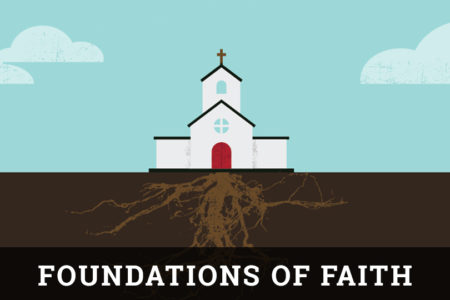The Imminency of Christ’s Return
The expression the imminency of Christ’s return means that Christ could return at any moment. Nothing else has to happen before His return.
Two significant things should be noted concerning the imminency of Christ’s return. First, the Bible teaches the imminency of His return in such passages as 1 Corinthians 1:7; 16:22 (“Maranatha” means Oh, Lord come!); Philippians 3:20; 4:5; 1 Thessalonians 1:10; Titus 2:12–13; James 5:7–9; Revelation 16:15; 22:7, 12, 20. Some of these passages declare that the Lord is near or at hand (even at the time the New Testament was written). Others indicate that the believers of the first century were eagerly waiting for Christ to return. All of them imply that He could return at any moment.
Second, throughout the history of the church, many of its leaders have recognized that the Bible teaches the imminency of the Lord’s return. Following are examples of such recognition.
The First Epistle of Clement, 23 (written around 96 A.D. by Clement, a prominent leader of the church at Rome who knew some of the apostles personally and probably is the Clement referred to in Phil. 4:3): “Of a truth, soon and suddenly shall His will be accomplished, as the Scripture also bears witness, saying,‘speedily will He come, and will not tarry.’”
The Didache, chapter 16, section 1 (written as early as 70 to 90 A.D. or as late as 120 to 180 A.D.): “ ‘Be vigilant’over your life; ‘let your lamps’ not be extinguished, or your loins ungirded, but be prepared, for you know not the hour in which our Lord will come.”
John Calvin, the reformer at Geneva during the 1500s and founder of the Presbyterian Church, made the following statements in some of his commentaries on books of the Bible: “Be prepared to expect Him every day, or rather every moment.” “As He has promised that He will return to us, we ought to hold ourselves prepared, at every moment to receive Him.” “Today we must be alert to grasp the imminent return of Christ.” Commenting on 1 Thessalonians 4, the Rapture passage, Calvin said that Paul “means by this to arouse the Thessalonians to wait for it, nay more, to hold all believers in suspense, that they may not promise themselves some particular time… that believers might be prepared at all times.”
The Westminster Confession, xxxiii, 3 (written by the Puritans of England during the 1600s), declared that men should “shake off all carnal security and be always watchful, because they know not at what hour the Lord will come.”*
J. Barton Payne, a 20th-century opponent of the pretribulation Rapture view, could not deny that the imminency of Christ’s return was taught in the Bible and was believed by church leaders throughout the church age. In his book The Imminent Appearing of Christ, after an entire section dealing with some of the Bible passages upon which the imminency of Christ’s return has been based historically, Payne made the following comment about the concept of Christ‘s imminent return: “The preceding section has validated a considerable group of passages that do demonstrate its legitimacy. In fact, no natural reading of Scripture would produce any other conclusion.” Payne also stated, “Belief in the imminency of the return of Jesus was the uniform hope of the early church.” Concerning early church believers, he said, “They were waiting, eagerly awaiting, His imminent appearing.”*
The pretribulation Rapture view is the only view of the Rapture that comfortably fits the biblical teaching of the imminent return of Christ. It is the only view that can honestly say that Christ could return at any moment and that nothing else has to happen before His return. Since all the other views believe that the church will go through at least part of the 70th week of Daniel 9 before Christ returns to rapture it, those views cannot honestly say that Christ could return at any moment. According to those views, at least some part of the 70th week of Daniel 9 has to transpire before Christ returns to rapture the church.








